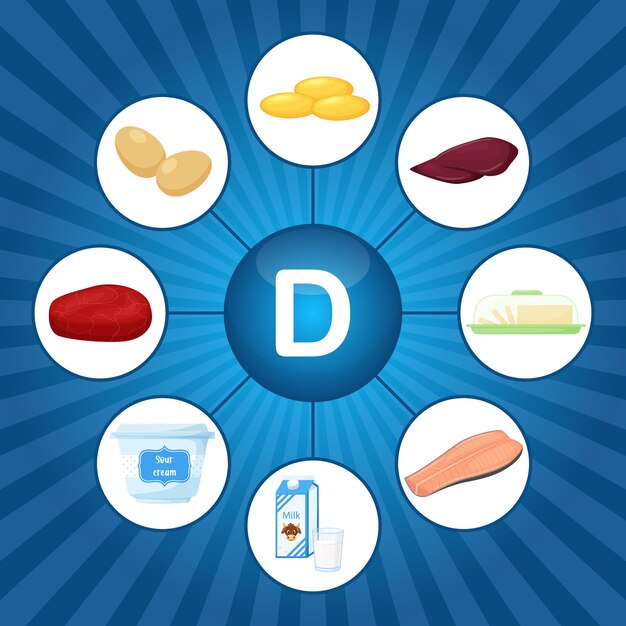Vitamin D, often called the “sunshine vitamin,” is more than just a nutrient—it’s essential for your body to function at its best. Unlike other vitamins, your body can produce Vitamin D when your skin is exposed to sunlight. However, modern lifestyles, poor diets, and environmental factors have made Vitamin D deficiency a common issue worldwide. This can lead to problems like weak bones, reduced immunity, and even mental health concerns.
In this guide, we’ll explore why Vitamin D is critical for your health, what happens when your body lacks it, and easy ways to increase your intake naturally.

Why Vitamin D Is Essential
1. Strong Bones and Teeth
Vitamin D ensures your body absorbs calcium and phosphorus, both essential for strong bones and healthy teeth. Without it, children can develop rickets, a condition causing soft and weak bones, while adults may experience osteomalacia, leading to bone pain and fragility.
2. Boosts Immunity
Vitamin D acts as a powerful ally for your immune system, helping it fight infections and reducing inflammation. Studies also suggest that adequate Vitamin D levels may lower the risk of autoimmune diseases, making it a cornerstone of overall health.
3. Enhances Muscle Strength
Muscle contraction, strength, and endurance depend on Vitamin D. Low levels can lead to muscle weakness, especially in older adults, affecting mobility and quality of life.
4. Promotes Cell Growth
Vitamin D supports cell repair and growth, aiding in wound healing and maintaining healthy skin. It also plays a role in regulating insulin production and glucose metabolism, keeping your energy levels balanced.
The Growing Problem of Vitamin D Deficiency
Top Reasons for Deficiency
- Indoor Lifestyles: Spending long hours indoors limits your exposure to sunlight, your body’s primary source of Vitamin D.
- Sunscreen and Pollution: Sunscreen blocks UV rays necessary for Vitamin D synthesis, while pollution reduces sunlight intensity.
- Poor Diet: A lack of Vitamin D-rich foods in your diet, particularly for vegetarians or those with restricted diets, increases the risk.
- Health Issues: Conditions like celiac disease, Crohn’s disease, and kidney or liver disorders can affect Vitamin D absorption.
- Ageing: As you age, your skin’s ability to synthesize Vitamin D decreases, making dietary and supplemental sources even more important.
Symptoms of Vitamin D Deficiency
- In Children: Severe deficiency can cause rickets, leading to skeletal deformities and delayed growth.
- In Adults: Symptoms include osteomalacia (soft bones), fatigue, muscle weakness, and an increased risk of osteoporosis.
- Other Symptoms: Low Vitamin D levels can also result in depression, weakened immunity, and slower wound healing.
How to Boost Your Vitamin D Levels
1. Consume Fortified Foods
Fortified foods are a convenient way to meet your daily Vitamin D requirements:
- Plant-Based Milk: Soy, almond, and oat milk are often fortified.
- Breakfast Cereals: Many brands add Vitamin D—check the labels.
- Orange Juice: Some varieties include added Vitamin D.
- Margarine and Bread: Common pantry staples fortified with this essential vitamin.
2. Get Some Sunlight
Spending 10-30 minutes in direct sunlight a few times a week can significantly improve your Vitamin D levels. Factors like skin tone, time of day, and location affect how much Vitamin D your body produces, so adjust your exposure accordingly.
